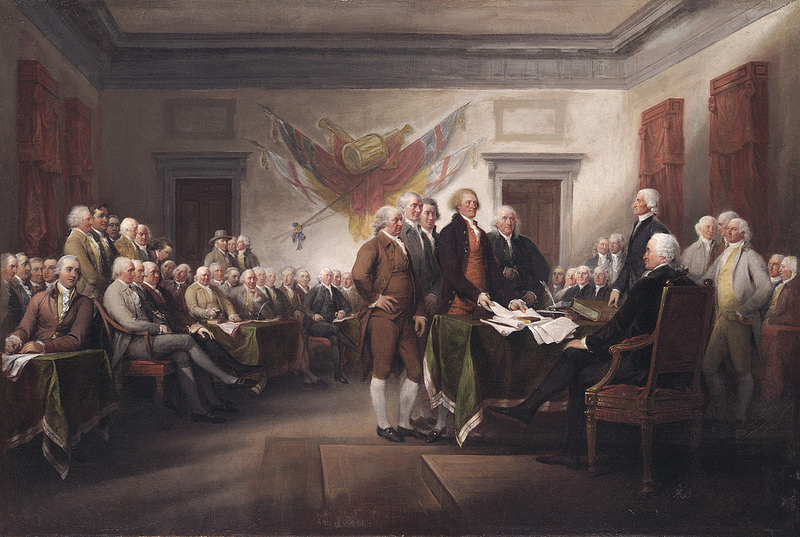Originally posted March 11, 2013.
Can there be any subject more vital to your personal security, your family’s security, and the security of America itself than our country’s foreign policy? Of course not, so it makes sense that if there is a rational mind out there who can explain to you why, for over two decades, America’s foreign policy has made America less safe, less prosperous, and less free, that’s a person you need to know.
 The person you need to know is Christopher Preble, the Cato Institute’s V.P. Defense & Foreign Policy Studies. In recent days, you have been inundated with commentary from both the left and the right on sequestration. The neocon right has gone bonkers. This is the crowd that promotes American empire, nation building, and a new world order. The name of the game for the neocons is Benevolent Global Hegemony, with the U.S. playing the part of the global hegemon, a concept that was first laid out in 1992. In The Power Problem, Mr. Preble tells readers, “In early 1992, aids to then defense secretary Richard ‘Dick’ Cheney began sketching out the Pentagon’s plans for the first decade of the post-Cold War era. The significance of the Defense Planning Guidance (DPG) that these men produced would become clear only many years later, when a number of them, including I. Lewis “Scooter” Libby, Zalmay Khalizad, and Paul Wolfowitz, assumed prominent roles in the George W. Bush administration. The DPG was just a draft, but it provides an early glimpse of what would one day become the dominant approach to U.S. foreign policy.”
The person you need to know is Christopher Preble, the Cato Institute’s V.P. Defense & Foreign Policy Studies. In recent days, you have been inundated with commentary from both the left and the right on sequestration. The neocon right has gone bonkers. This is the crowd that promotes American empire, nation building, and a new world order. The name of the game for the neocons is Benevolent Global Hegemony, with the U.S. playing the part of the global hegemon, a concept that was first laid out in 1992. In The Power Problem, Mr. Preble tells readers, “In early 1992, aids to then defense secretary Richard ‘Dick’ Cheney began sketching out the Pentagon’s plans for the first decade of the post-Cold War era. The significance of the Defense Planning Guidance (DPG) that these men produced would become clear only many years later, when a number of them, including I. Lewis “Scooter” Libby, Zalmay Khalizad, and Paul Wolfowitz, assumed prominent roles in the George W. Bush administration. The DPG was just a draft, but it provides an early glimpse of what would one day become the dominant approach to U.S. foreign policy.”
Mr. Preble continues, “Although the document was never formally released to the public, the basic outlines of the DPG are now well known, and were widely discussed at the time. The document held that U.S. power was crucial to the functioning of the global order. It stipulated that the United States would be the global hegemon, the undisputed power in all regions of the globe, and would stand prepared to act—preemptively, if necessary—to halt the rise of potential challengers. Any military power, held by any other country—be they friendly, economically advanced democracies, or hostile and impoverished autocracies—would be viewed with suspicion.”
Mr. Preble tells readers, “The Founders of our great nation—men such as George Washington, Thomas Jefferson and James Madison—worried that wars would give rise to an overgrown military establishment that would upset the delicate balance between the three branches of government, and between the government and the people…. Madison added another crucial caveat, seeing warfare as a kind of Petri dish for the expansion of power at the expense of the individual.”
Our Constitution calls for “we the people” to provide for the common defense. The Constitution says nothing of providing for the common defense of countries around the world. Article. 1. Section. 8. of the Constitution tells us that Congress has the power to raise and support Armies, but no Appropriation of Money to that Use shall be for a longer Term than two years. In the same Section, the Constitution also calls for Congress to provide for calling forth the Militia to execute the Laws of the Union, suppress insurrections and repel invasions. Section. 8. also reserves to the States respectively, the Appointment of the Officers, and the Authority of training the Militia according to the discipline prescribed by Congress.
The wording of the Constitution is clear. There is no authorization that would in any way square with a global hegemony concept. And how about two years of Money appropriations? There is zero chance that the Founders would have considered a more-than-decade occupation of Afghanistan, never mind any sort of counterinsurgency/nation-building strategy as engineered in both Iraq and Afghanistan. The Constitution was very much a states’ rights, weak central government document. The states were to have appointed officers and trained the militia. And it was the same state-trained militia that would repel invasions. The Swiss run their national defense system in like manner. The Swiss militia based defense system is so strong that Hitler decided the risk was too great to invade Switzerland during WWII. The Swiss spend 0.8% of GDP on the defense of Switzerland. The Swiss, like Sweden, are neutral and keep their noses out of the other guy’s business, as the Founders proposed for America. We, on the other hand, spend 4.6% of GDP on national defense/offense—six times what the totally defense-paranoid Swiss spend. In The Power Problem, Mr. Preble harks back to philosophy of the Founders’ writing that free nations possess small professional militaries and strive to avoid foreign wars.
American empire, nation building, global hegemon, counterinsurgency-centric politicians—including John McCain. Lindsey Graham, Mitt Romney, Barack Obama, and the national media, including Fox News, The Wall Street Journal, The Weekly Standard and National Review—pitch the nation building theme. The Defending Defense Project, comprising the Kristol/Kagan Foreign Policy Initiative, Heritage Foundation, and American Enterprise Institute, grind out a steady drumbeat of neocon based policy support. Americans who refer to themselves as conservative in many cases will find themselves shocked with the realization that conservative is a label that must be worn with caution.
Chris Preble writes, “Our military has become a problem, and this problem is the basis for this book’s controversial argument.” He advises that we should reduce our military to be more secure. “The United States has been corrupted by its great military power, which has shifted the delicate balance between the executive branch and the other two branches of government.”
On March 18, Chris will host a Cato Institute presentation featuring Mr. Fred Kaplan, the author of The Insurgents—David Petraeus And The Plot To Change The American Way Of War. I own both the Kindle and hard-copy editions of Mr. Kaplan’s new book, as well Mr. Preble’s The Power Problem. These two groundbreaking books can greatly improve your understanding of the stranglehold neocon theory has on American foreign policy. Moreover, I believe that you will agree with Mr. Preble and Dick Young that our country is on the wrong foreign policy track. It is clear that America must change course now to avoid consequences that no American would wish for.
Read Part II of The Most Important Person You May Have Never Heard Of.
Chris Preble, the Cato Institute’s vice president for Defense and Foreign Policy Studies, has been regularly featured on Richardcyoung.com as “The Most Important Person In America You May Never Have Heard Of.”
If you’re willing to fight for Main Street America, click here to sign up for my free weekly email.






